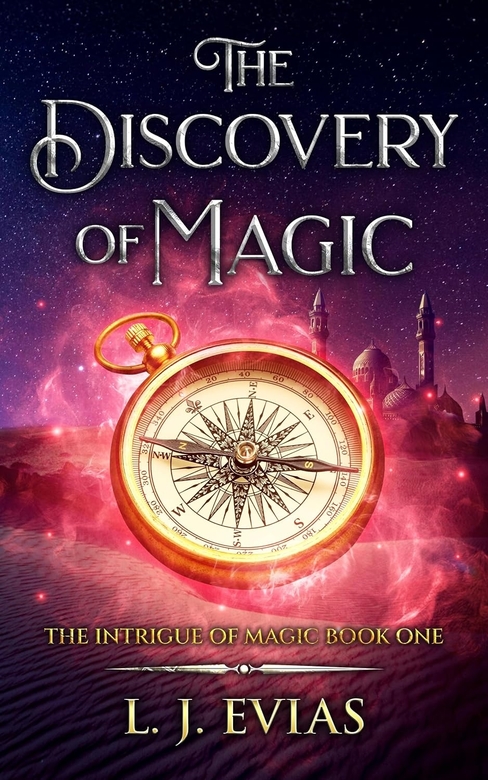An archery champion and her unlikely fellowship are transported to a mystical realm in dire need of saving in The Discovery of Magic by L. J. Evias, the creative first novel in the Intrigue of Magic series.
Facing the prospect of moving away and leaving behind all she loves, Alice Harper is determined to win an archery scholarship and find a tangible reason to stay. However, when she and her pals stumble through a mysterious cave portal to another world, the extracurricular stakes get significantly higher. Separated upon their arrival, these five young travelers must navigate a highly divided world filled with magical threats, delicate alliances, and savvy manipulators at every turn.
The kingdoms of North and South Parsa are locked in a cold war of geopolitical influence and magical dominance, and when exploring new worlds can tip the balance of power, strange visitors from an unmapped place like Earth are embraced as valuable allies – or perhaps unwitting pawns. The power dichotomy of the North and South kingdoms of Parsa feels like a microcosm of the historical imbalance between the Global North and South, a theme further reflected in the book’s battle of tradition and stability versus conquest and progress.
Echoing A Connecticut Yankee in King Arthur’s Court and other out-of-place hero journeys, the contemporary characters are endearing and believable figures in this somewhat familiar story arc. The relationship dynamics between Alice, Jamie, Jordan, and Emily are set early, and readers are given good reasons to invest in the adventurous tale and care about the protagonists’ fate. The brotherly connection and rivalry between Jordan and Jaime rings with authenticity, while their tangled feelings towards Alice add a simmering tension to the twisting plot. A similar bond and competitiveness exists between Javed and Darien, along with a sly yet sisterly force in Yazmin, making it difficult to determine whose intentions are noble and who wants to use Alice’s arrival for their own ends.
The magical rules of the realm seem a bit too broad; powers appear to be elementally based, but some individuals (for example, the Royal Mage) have incredibly outsized power, such as limitless teleportation and massively destructive offensive spells. When readers know that nearly godlike powers exist in the framework of the book, it can undercut the plot’s suspense and the developmental journey of the empowered protagonists. That aside, the world-building is strong, with thematic undercurrents pointing back to contemporary life in a way that inspires a continuing sense of empathy for the characters – the nature of portals and their up/downstream divisions is one of the most creative elements of Evias’ world-building, acting as an elbow-nudging parallel to immigration patterns and the slow-burning conflicts of cultural crossover.
In terms of execution, the prose and dialogue are declarative and straightforward, with the narration telling more often than showing, particularly when it comes to characters’ thoughts, emotional reactions, and motivations. When opportunities for greater detail do arrive, such as Alice’s first impressions of the palace in North Parsa, the descriptive language can be somewhat vague and difficult to envision: “…everything was just a little bit odd and a little bit excessive.” There are moments of more descriptive prose, but the expositional depth is generally uneven.
As a whole, while the set-up to this fantasy novel may be familiar, Evias’ care with character interaction and modern-day social parallels make it a distinctly compelling start to a new series.
Book Links
STAR RATING
Design
Content
Editing
Get an Editorial Review | Get Amazon Sales & Reviews | Get Edited | Get Beta Readers | Enter the SPR Book Awards | Other Marketing Services
























Leave A Comment